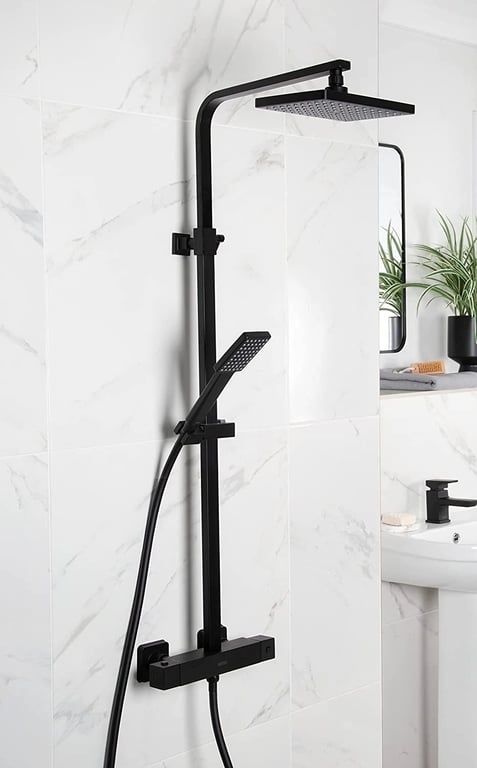Choosing the perfect shower mixer for your New Zealand home involves more than just picking a design that looks good. It’s a decision that impacts your daily comfort, water efficiency, and the overall aesthetic and functionality of your bathroom. With a myriad of options available, from traditional two-handle mixers to modern thermostatic and digital systems, understanding the key factors will help you make an informed choice that suits your lifestyle and plumbing system.
Understanding Your Plumbing System
Before diving into styles and features, it’s crucial to understand your home’s water pressure and hot water system. New Zealand homes typically have one of three main hot water systems:
- Mains Pressure: This is common in newer homes, providing consistent high pressure for both hot and cold water. Most modern shower mixers are designed for mains pressure.
- Low Pressure (Gravity Fed): Often found in older homes, this system relies on gravity from a hot water cylinder in the roof space, resulting in lower water pressure. Special low-pressure mixers are required to ensure adequate flow.
- Unequal Pressure: This occurs when you have mains pressure cold water but low-pressure hot water. Again, specific unequal pressure mixers are necessary to balance the flow and prevent scalding or cold shocks.
Installing the wrong type of mixer can lead to poor performance, fluctuating temperatures, or even damage to your plumbing. If you’re unsure about your system, consult a qualified plumber.
Types of Shower Mixers
The market offers several types of shower mixer nz, each with distinct advantages:
- Manual Mixers (Single Lever/Two Handle): These are the most basic and common. A single lever controls both flow and temperature, while two-handle mixers have separate controls for hot and cold. They are generally affordable and easy to install but require manual adjustment to maintain temperature, which can be challenging with fluctuating water pressure.
- Thermostatic Mixers: These are a premium choice for safety and comfort. A thermostatic mixer automatically maintains a consistent water temperature, even if someone flushes a toilet or turns on a tap elsewhere in the house. This prevents sudden changes in temperature, making them ideal for families with children or elderly members. They often feature a safety stop to prevent accidental scalding.
- Diverter Mixers: Many mixers incorporate a diverter, allowing you to switch water flow between different outlets, such as a fixed shower head and a hand-held shower. This adds versatility to your showering experience.
- Digital Showers: The most advanced option, digital showers offer precise temperature control, pre-set programs, and often remote control capabilities. While more expensive, they provide a luxurious and highly customisable showering experience.
Design and Aesthetics
The look and feel of your shower mixer play a significant role in your bathroom’s overall design. Consider the following:
- Finish: Chrome is the most popular and versatile finish, but matte black, brushed nickel, and even gold or bronze options are available to match your bathroom’s style. Ensure the finish is durable and easy to clean.
- Style: From minimalist modern designs to classic traditional styles, choose a mixer that complements your existing bathroom fixtures and decor.
- Mounting: Mixers can be wall-mounted (most common), deck-mounted (if you have a bath/shower combination with a deck), or even concealed within the wall for a sleek, minimalist look. Concealed mixers require more complex installation but offer a very clean aesthetic.
Water Efficiency and Regulations
In New Zealand, water conservation is increasingly important. Look for shower mixers with a good Water Efficiency Labelling and Standards (WELS) rating. A higher star rating indicates greater water efficiency, which can lead to lower water bills. Additionally, ensure the mixer complies with New Zealand’s plumbing and building codes. Reputable suppliers and plumbers will only stock and install compliant products.
Budget and Installation
Shower mixer prices vary widely based on type, brand, features, and finish. Set a realistic budget that accounts for both the mixer itself and professional installation. While DIY installation might seem appealing, a qualified plumber ensures correct fitting, prevents leaks, and guarantees compliance with regulations, especially for thermostatic or concealed units. Investing in professional installation can save you costly repairs down the line.
By carefully considering your plumbing system, the type of mixer that best suits your needs, design preferences, and budget, you can select the right shower mixer that enhances your daily routine and adds value to your New Zealand home.

